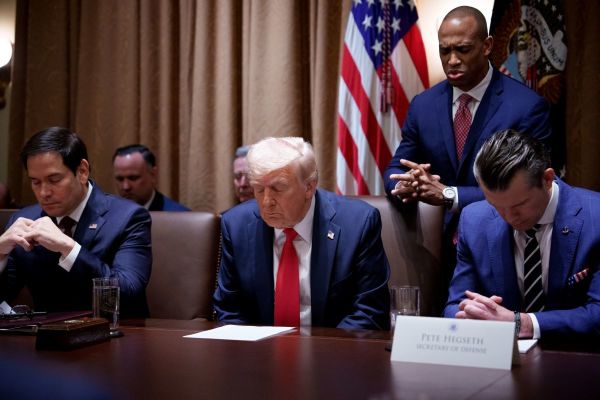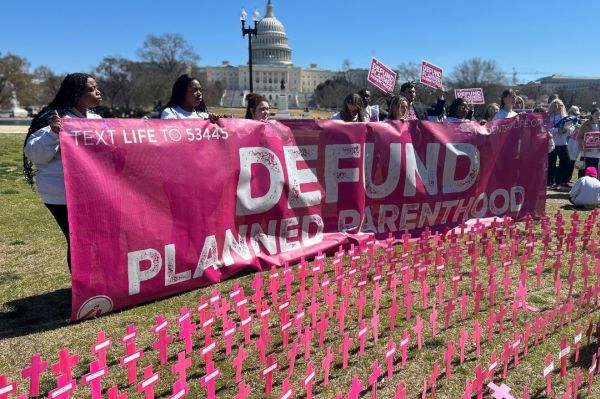Should We Fear Big Government?
My 95 year-old mother watches the news regularly, so I was somewhat surprised when she asked me recently, "What's the difference between a liberal and a conservative?"
Happy for the opportunity to explain, I told her, "A major difference is their view of the role of government in society. Liberals see government as the solution to society's problems," I said. "Conservatives agree with Ronald Reagan, who said that the nine most terrifying words in the English language are, 'I'm from the government and I'm here to help.'"
But is that how Americans see it today? Almost 50 percent of the population now receive some form of government assistance. Has government become less of a threat and more like a "friend indeed in time of need?" Are people now turning to the government for help in tough times, instead of going to family, friends, church, and community organizations? If they are, the efforts of these social institutions will dwindle, and government will continue to grow.
In 1965, Gallup started asking Americans the question: "In your opinion, which of the following will be the biggest threat to the country in the future-big business, big labor, or big government?" Only a third (35 percent) said big government was the biggest threat to our country.
But that changed in 1999 and 2000 when the number hit an all-time high. Two-thirds (65 percent) of Americans said government was the biggest threat to the future of the country.
In 2002, the Enron and WorldCom accounting scandals hit, and some began to see big business as the biggest threat-but still only 38 percent as compared to the 48 percent who said it was big government.
The most recent Gallup poll on this question was done in December 2011. Fear of big government is back. Once again, two-thirds of Americans (64 percent), say they think big government poses the greatest threat to the future of our country.
In addition, the most recent annual Gallup poll on governance showed that a majority of Americans (54 percent) believe the government is doing too many things that should be left to individuals and businesses. By contrast, about four in 10 Americans (39 percent) say the government needs to do more to solve the nation's problems.
Based upon these polls, we would expect that if people would vote according to what they say are their beliefs, candidates who espouse the constitutional principles of limited government would sweep the fall elections.
Sadly, because we are all fallible creatures stained by sin, history shows that people are prone to say they believe one thing-and do just the opposite. Also people's opinions can be swayed by current events. Even the number of those who now say that government is doing too much has dropped from a record 61 percent just a few months ago.
So should we fear big government?
Victor David Hanson lists a number of reasons why we should in his essay, "Why Fear Big Government?" (PJ Media, 2/8/2010). Here are a couple:
"One of the scariest things about government is its exemption from laws by virtue of its monopoly on lawmaking and enforcement," writes Hanson. "…big government creates millions who feel the law does not pertain to themselves. Ask Tom Daschle, Duke Cunningham, Chris Dodd, or Timothy Geithner. The result is an increasingly lawless society."
When the Patient Protection and Affordable Care Act, most commonly referred to as "Obamacare" is fully in place, a tiny select few will be exempt from its tentacles: the President and the leadership and committee staffers in the House and Senate who wrote the bill. They carefully crafted a loophole to exempt themselves from the one-size-fits all system that's going to cover everyone else, even the Vice President. (Washington Times, 3/23/2010).
Another problem with big government is the graft and patronage that follow. Hanson says that in his home state of California, "there are hundreds of worthless state boards with six-figure, governor-appointed officials…. as soon as we elect our state officials, we accept that they will cut deals with state executives to provide for their upcoming retirements-"I'll vote for this, if in 4 years I get that spot on the state water board or the state fair practices committee."
The bigger government grows, the more government spoils there are to give out to one's political friends and supporters, and the more difficult it is to oversee the distribution of benefits. A recent Senate investigative subcommittee report found that between 2006 – 2010, 25 percent of Social Security disability benefits were improperly awarded.
We should state that there is a legitimate purpose for government. Anarchy is not God's plan. As I Peter 2:14 says, we should submit ourselves "to governors, as to those who are sent by him for the punishment of evildoers and for the praise of those who do good."
However, when our "governors" lose sight of this fundamental purpose for government, then it's time for Americans to recognize that big government is not the answer to the problems that beset us; it's part of the cause.






















